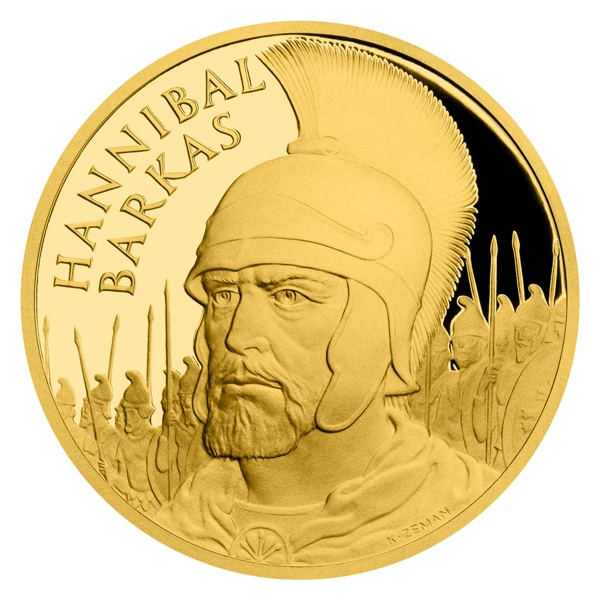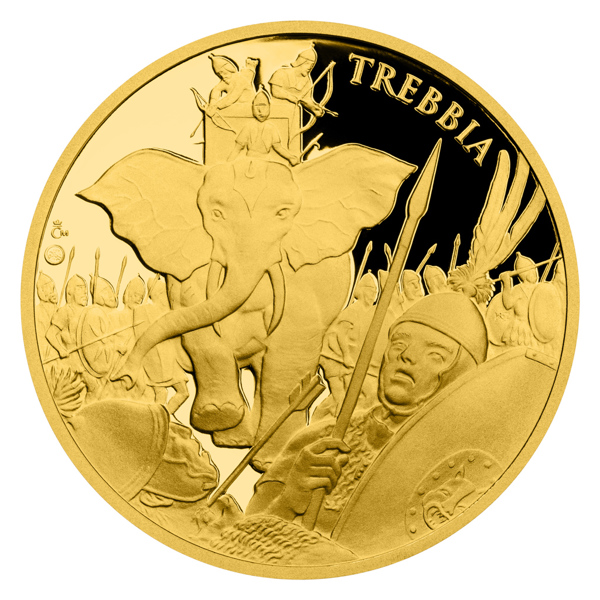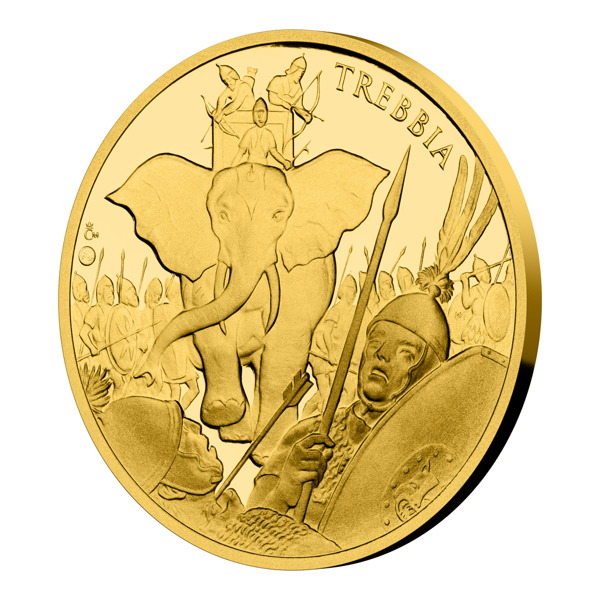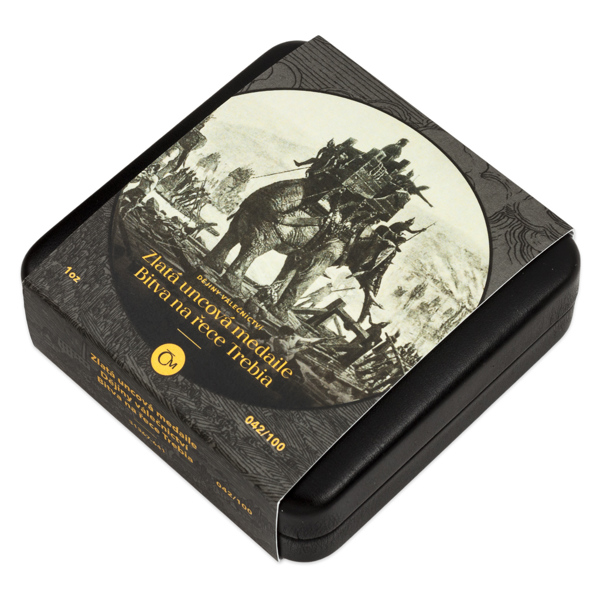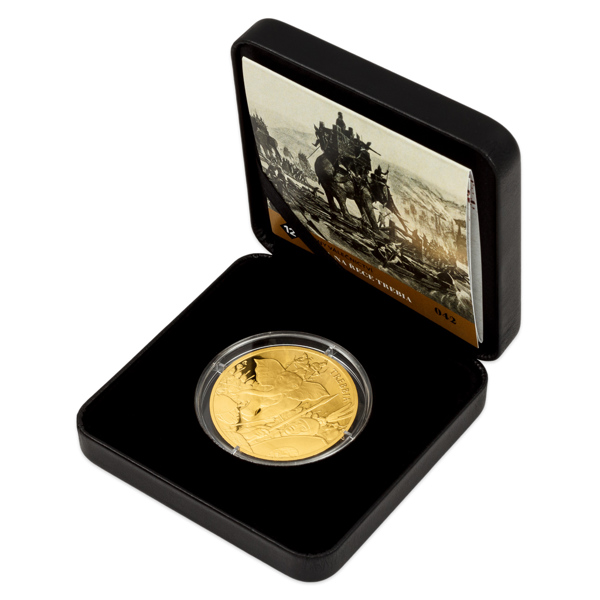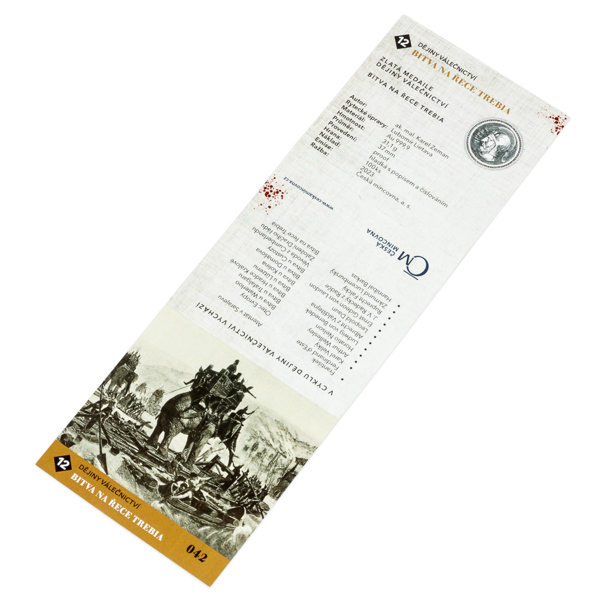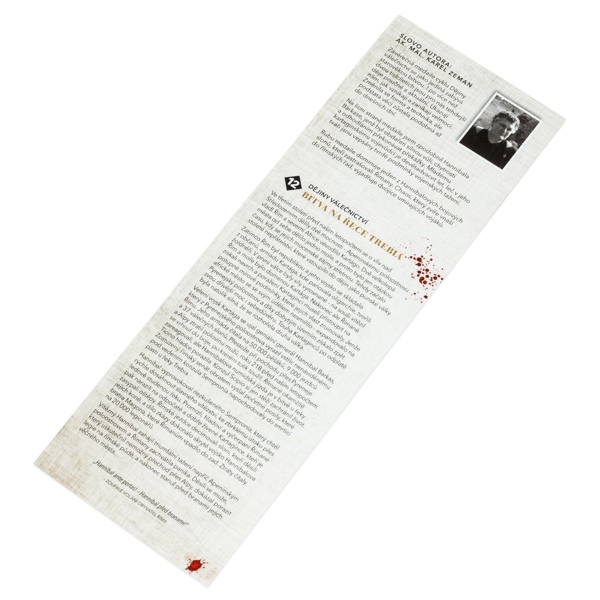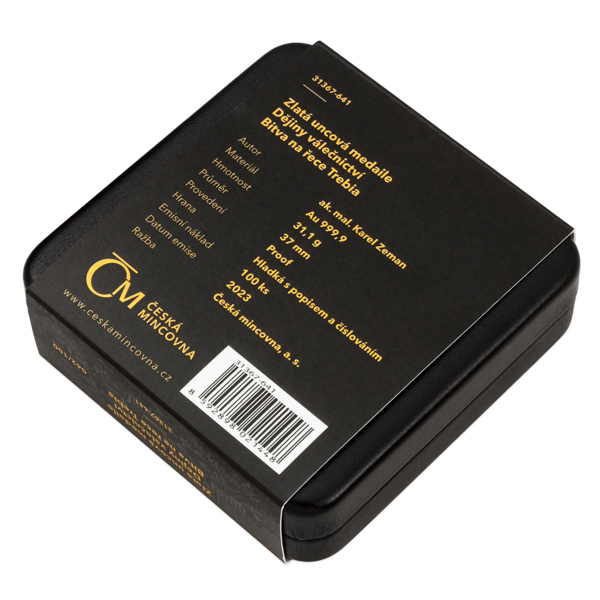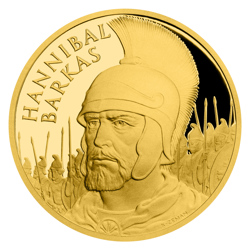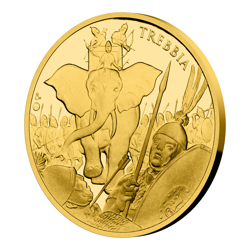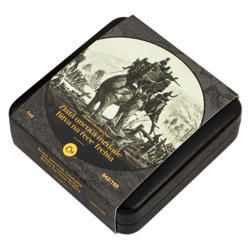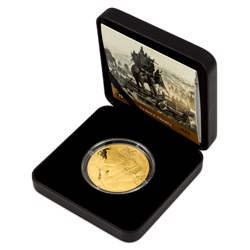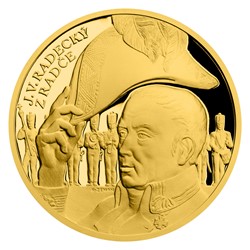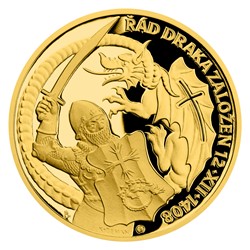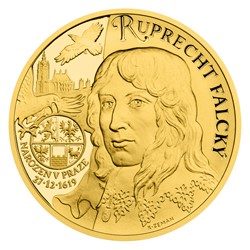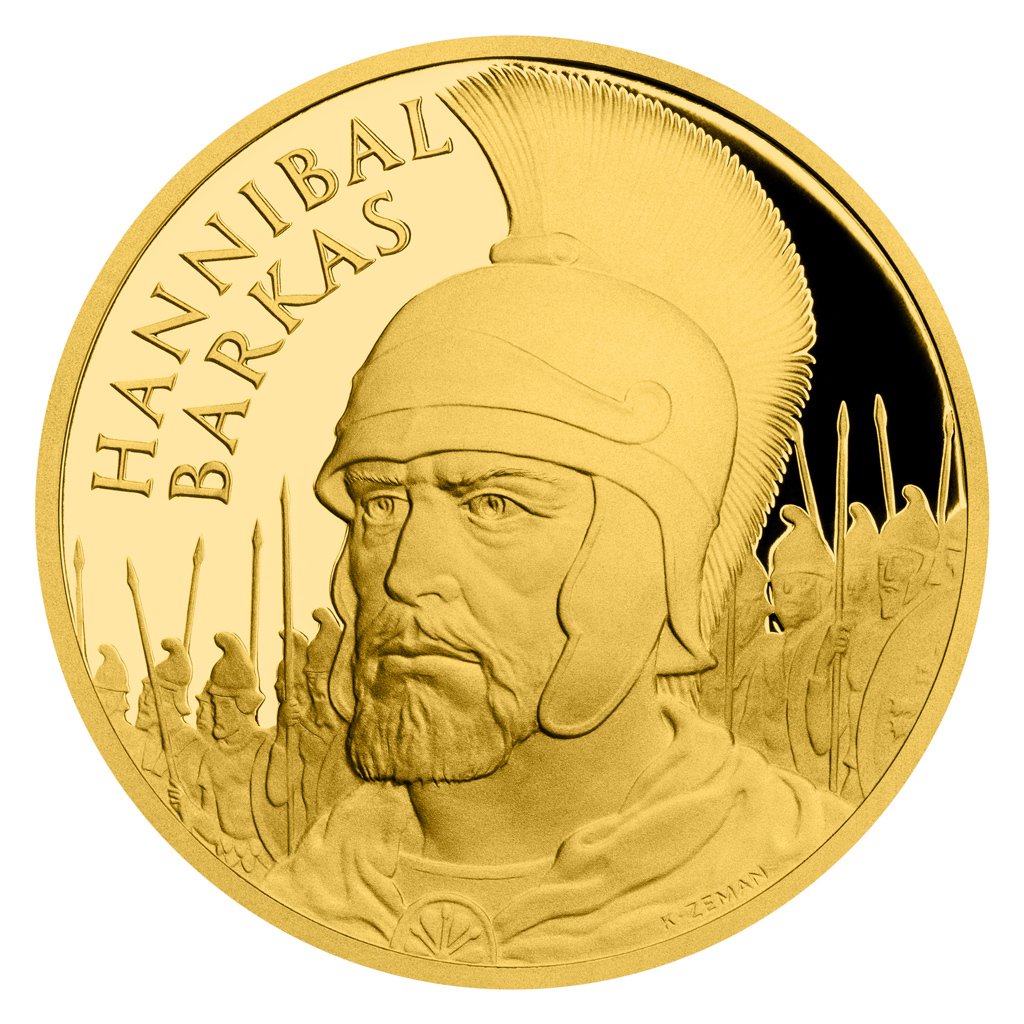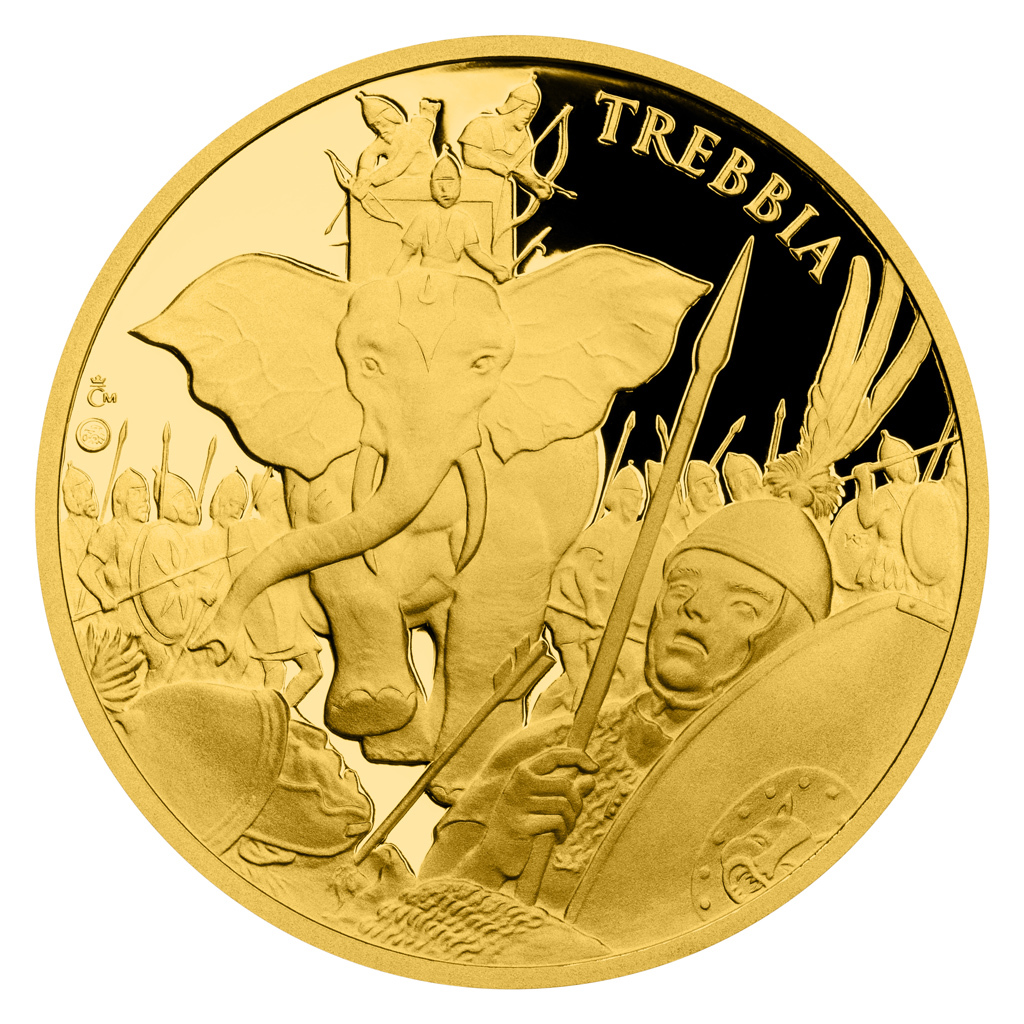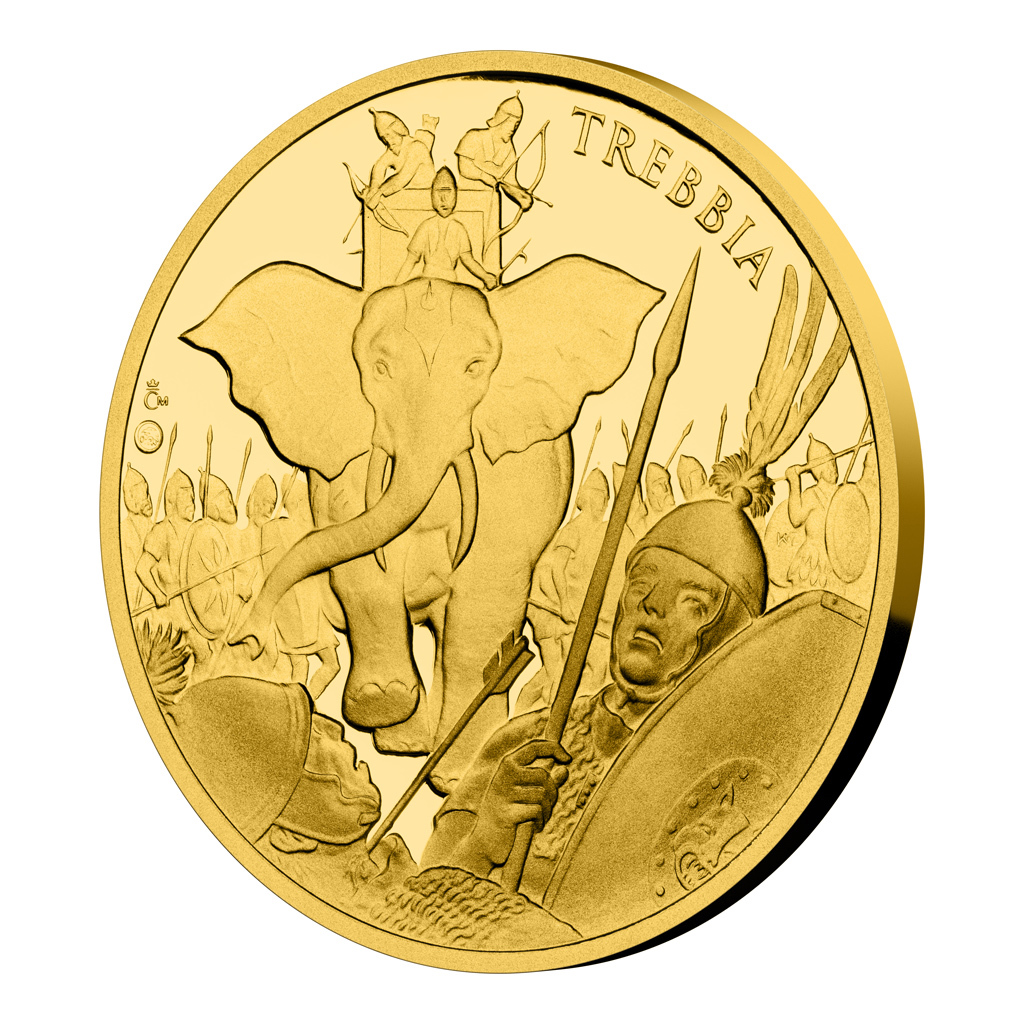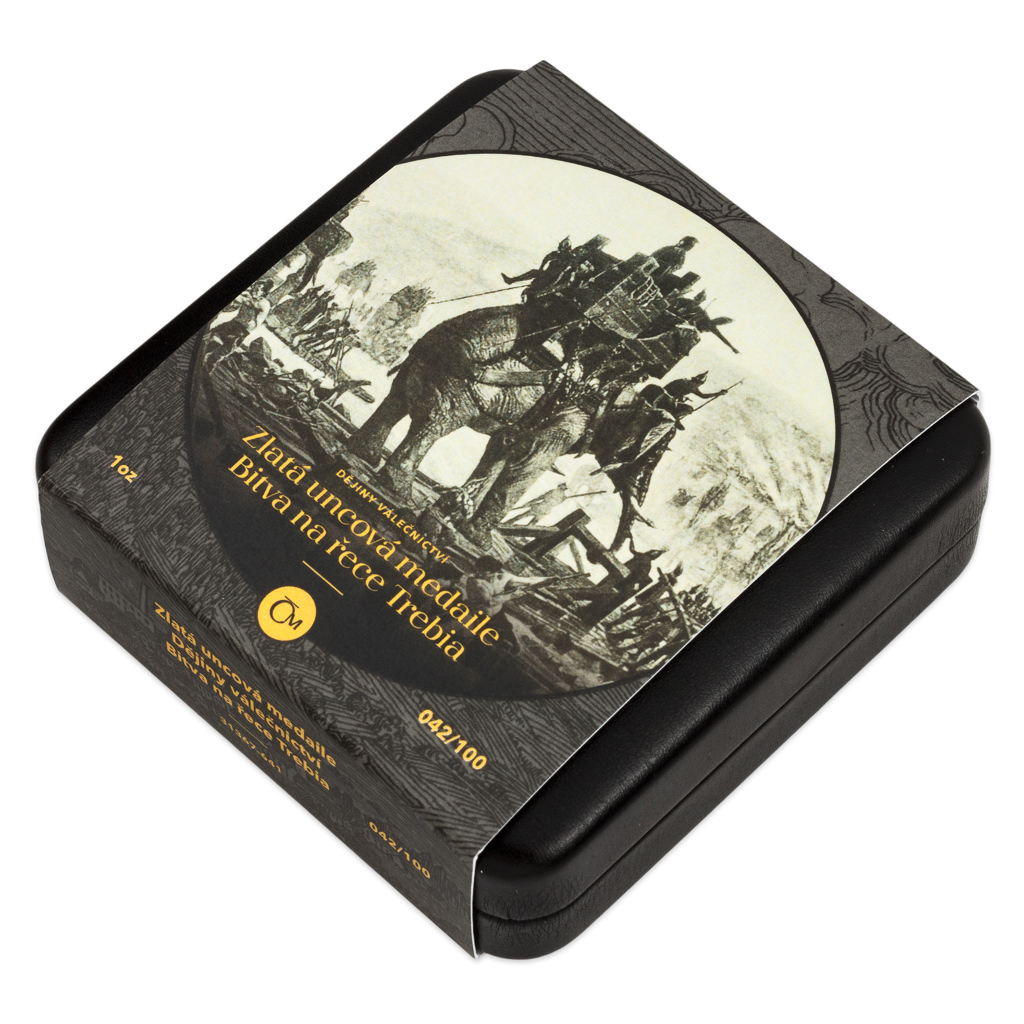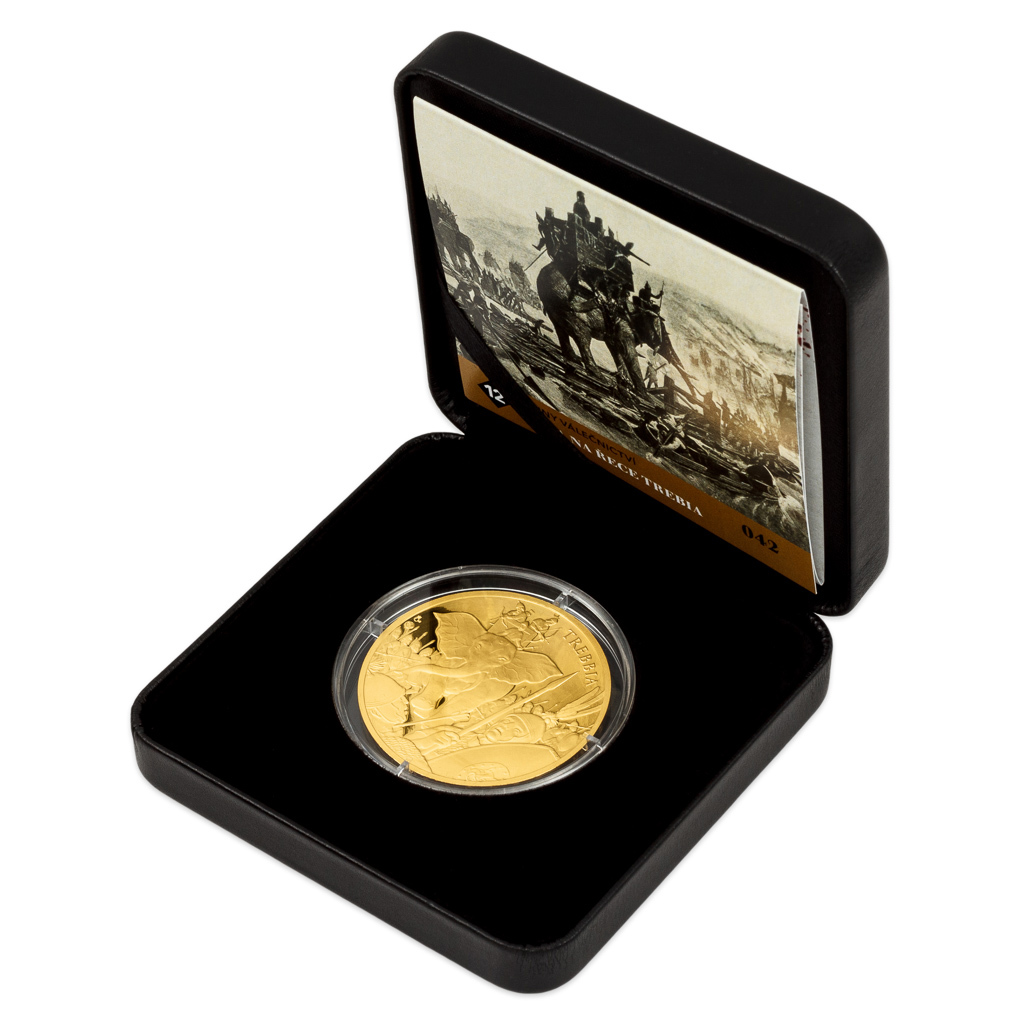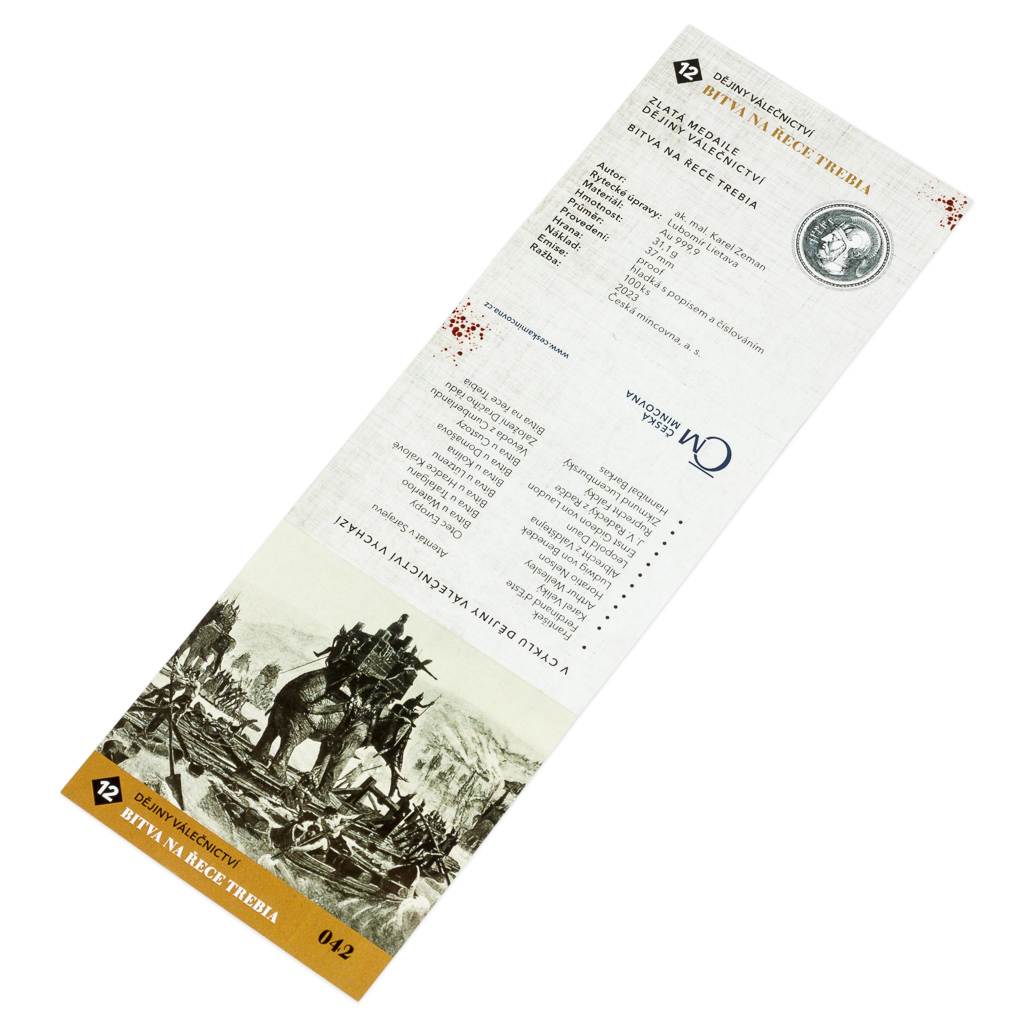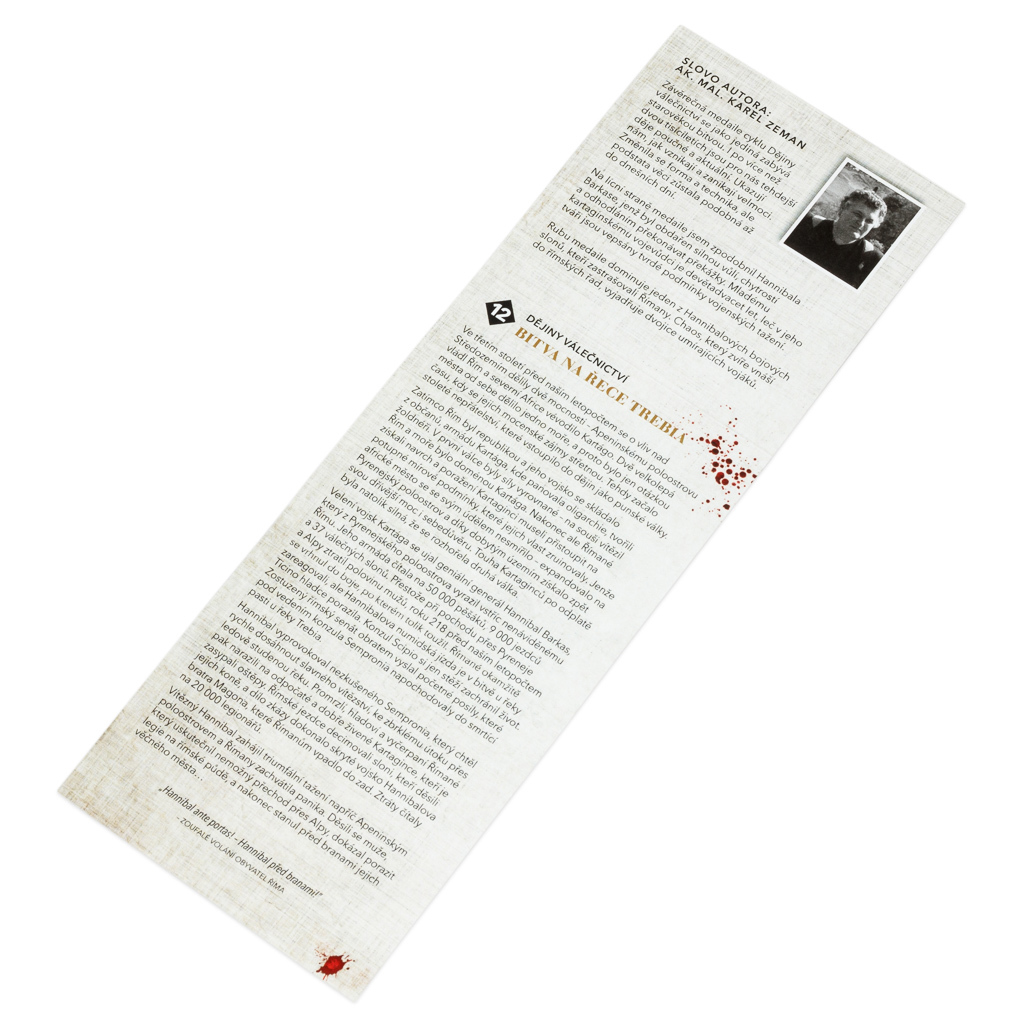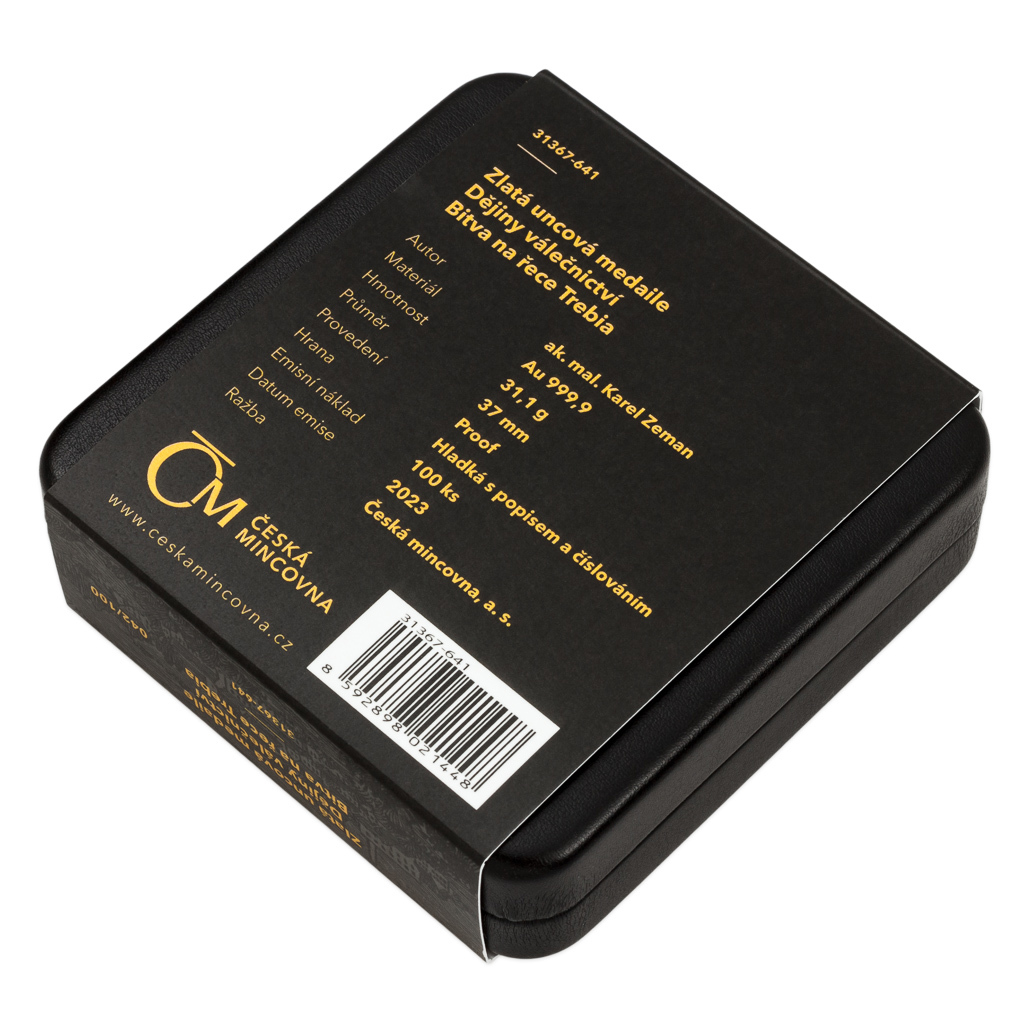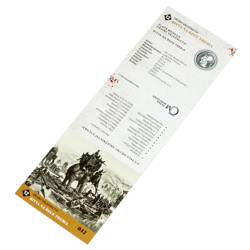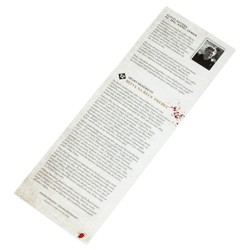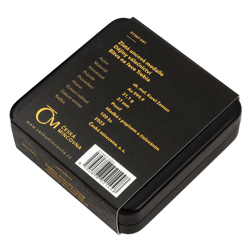Gold one-ounce medal History of warcraft - Battle on the river Trebia proof
Gold one-ounce medal History of warcraft - Battle on the river Trebia proof
The product can also be purchased directly in the stores of the Czech Mint
Product description
The five-year wait for fans of academic painter Karel Zeman is over. The final gold medal from the Czech Mint's twelve-part History of Warfare series pays tribute to Hannibal's triumph at the Battle of the Trebia River.
In the third century BC, two powers shared influence over the Mediterranean - Rome ruled the Apennine Peninsula and Carthage dominated North Africa. The two great cities were separated by a mass of water, and it was only a matter of time before their power interests collided. Then began a century of hostility known as the Punic Wars. In the first war, the forces were evenly matched - Rome won on land and the sea was the domain of Carthage. Eventually, however, the Romans gained the upper hand and the defeated Carthaginians had to agree to ignominious peace terms that ruined their homeland. But the African city was not resigned to its fate - it expanded into the Iberian Peninsula and regained its former power and self-confidence thanks to the conquered territories. The Carthaginian desire for revenge was so strong that a second war broke out. The brilliant general Hannibal Barkas took command of Carthage's forces and set out from the Iberian Peninsula to meet the hated Rome. His army numbered 50,000 infantry, 9,000 cavalry and 37 war elephants. Although he lost half his men during the march across the Pyrenees and the Alps, he threw himself into the battle he so longed for in 218 BC . At the Battle of the Ticino River he smoothly defeated the Romans, who sent numerous reinforcements. But they marched into a death trap by the river Trebia. The inexperienced consul Sempronius, eager to achieve a glorious victory, was provoked into a rash attack across the icy cold river. The exhausted Romans then encountered the rested Carthaginians, the Roman horsemen were decimated by elephants, and the work of destruction was completed by the hidden army of Hannibal's brother Magon, who fell into the enemy's rear. Casualties amounted to 20,000 legionaries, and for the victorious Hannibal the way was opened to the gates of Rome itself…
The obverse side of the medal, by academic painter Karel Zeman, is dominated by a portrait of the hardy Hannibal standing at the head of his troops. On the reverse side you will also find the Carthaginian warriors, with an elephant trampling their way through the battle on the Trebia River. The archers on its back sow death among the terrified Roman legionaries.
The gold medal is limited to only 100 pieces. Each medal is hand-numbered on the edge and supplemented with a special certificate of authenticity that includes an accompanying word from the artist together with a historical text.
 čeština
čeština
 slovenčina
slovenčina
 english
english
